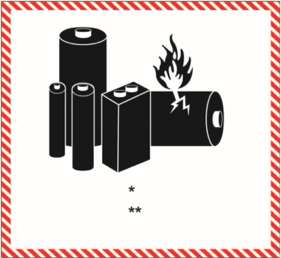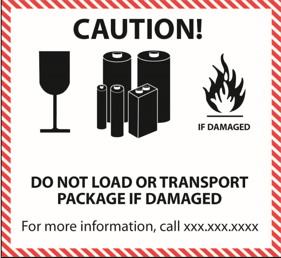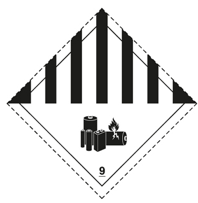
Service News
Stay on top of the latest regulatory updates, service disruptions,
service news and alerts.
Coronavirus (COVID-19)
We have been and will continue to operate to and from impacted areas as local conditions and restrictions allow. Please use our online tools to check the status of your shipment, obtain a quote or process new bookings.
In response to market demand, we have even added extra flights to meet this demand.
To continue providing our customers with the best possible service during this time, we are implementing a temporary surcharge on all FedEx Express and TNT international parcel and freight shipments, from April 6th until further notice.
The surcharge does not apply to domestic intra-country shipments.
The impact of COVID-19 is causing local, state, and national governments in Europe and around the world to issue work and travel restrictions on a daily basis, which are impacting our ability to meet our high standards of service. As a result, we have made the decision to suspend our money-back guarantee for all FedEx Express services, effective immediately until further notice. FedEx Express is playing a crucial role in the global supply chain and connecting the world during this critical time, and we will continue operating as government restrictions and regulations allow. We also remain focused on serving our customers and providing relief supplies to areas that need it most.
Service News for Customers
Customers may experience delays on shipments. Please check our Service Update pdf for the latest information.
If you ship to Saudi Arabia, please note that from September 30, 2019, you will need to use the correct postal codes and postal code formats when you ship to Saudi Arabia using your FedEx automation solution.
From the effective date without correct postal code information you will no longer be able to generate a shipping label using your FedEx automation solution.
This change will help to prevent lost or abandoned shipments, enhancing our customer service, as well as satisfying regulatory compliance requirements.
Do you use the address book feature?
If you frequently use the address book feature or other recipient address source, please update any entries for Saudi Arabia and save the correct postal code and format by September 29, 2019. We recommend updating your recipient delivery address information now to prevent issues with shipping label generation.
The following table shows the postal format for this country.
Country Code |
Region |
Postal Format Effective September 30, 2019 |
| SA Saudi Arabia |
Middle East | NNNNN (5 digits) |
To learn more
Please contact your local Customer Services team.
If you ship to Ecuador, Romania and/or Slovakia, please note that from 1 April 2019, you will need to use the correct postal codes and postal code formats when you ship to any of these three countries using your FedEx automation solution.
From the effective date without correct postal code information you will no longer be able to generate a shipping label using your FedEx automation solution.
This change will help to prevent lost or abandoned shipments, enhancing our customer service, as well as satisfying regulatory compliance requirements.
Do you use the address book feature?
If you frequently use the address book feature or other recipient address source, please update any entries for these countries and save the correct postal code and format by March 31, 2019. We recommend updating your recipient delivery address information now to prevent issues with shipping label generation.
The following table shows the postal formats for these countries. Please note that Ecuador postal formats are also changing.
Country Code |
Region |
Postal Format Effective April 1, 2019 |
| EC Ecuador |
LAC | XXXXXX (6 digits)* |
| RO Romania |
EU |
XXXXXX (6 digits) |
| SK Slovakia |
EU | XXXXX (5 digits) |
*Note: Previous postal format contained only five digits.
To learn more
Please contact your local Customer Services team.
IATA has reported that lithium batteries are now the preferred energy source for many consumer goods ranging from mobile phones and children's toys to cars and e-bikes. Such shipments are however considered dangerous goods and can pose a safety risk if not prepared in accordance with transport regulations. Click here to get more information.
Mitigate risk and improve safety
From now on, when you prepare shipments containing lithium batteries Section II (UN3481 & UN3091) using FedEx Ship Manager® Software, FedEx Ship Manager® Server, FedEx Web Services or FedEx® Compatible solutions, please indicate which type(s) of lithium batteries you have included in your shipment.
As Section II lithium batteries are less regulated than other type of lithium batteries, your selection will help us increase their visibility throughout our network and ensure the safety and integrity of your dangerous goods shipments until their final destinations.
How to specify in your application
FedEx Ship Manager® Software
- Open your FedEx Ship Manager
- Select Ship and then Create a Shipment to complete your shipment details
- Under Special Handling, tick “Lithium Batteries/Cells” and click Edit to select the description that applies to your shipment:
- Ion Packed with Equipment (UN 3481, PI966)
- Ion Contained in Equipment (UN 3481, PI967)
- Metal Packed with Equipment (UN 3091, PI969)
- Metal Contained in Equipment (UN 3091, PI970)
FedEx Ship Manager® Server, FedEx Web Services or FedEx® Compatible solutions
- Open your preferred shipping solution
- Complete your shipment details as you would normally do
- Under the Dangerous Goods section, specify the relevant Lithium Batteries/Cells classifications that apply to your shipment:
- Ion Packed with Equipment (UN 3481, PI966)
- Ion Contained in Equipment (UN 3481, PI967)
- Metal Packed with Equipment (UN 3091, PI969)
- Metal Contained in Equipment (UN 3091, PI970)
Please click here for the latest updates, developer guides and other information on your preferred shipping application from the FedEx Developer Resource Centre.
To learn more
- Visit our page dedicated to lithium battery shipping.
- Contact your FedEx Express Customer Services and ask for the Dangerous Goods Specialist
- Read more about lithium batteries in the IATA Dangerous Goods Regulations Manual available for purchase at iata.org. This manual contains information on lithium battery packing, marking, labelling & documentation.
IATA has reported that lithium batteries are now the preferred energy source for many consumer goods ranging from mobile phones and children's toys to cars and e-bikes. Such shipments are however considered dangerous goods and can pose a safety risk if not prepared in accordance with transport regulations. Click here to get more information.
Mitigate risk and improve safety
From now on, when you prepare shipments containing lithium batteries Section II (UN3481 & UN3091) using FedEx Ship ManagerTM at fedex.com please indicate which type(s) of lithium batteries you have included in your shipment.
As Section II lithium batteries are less regulated than other type of lithium batteries, your selection will help us increase their visibility throughout our network; and ensure the safety and integrity of your dangerous goods shipments until their final destinations.
Easy to use
- In the header at the top of this page, select Ship and then Ship online – all features
- Enter your login & password, if you are not logged in yet
- Select Ship and then Create a Shipment to complete your shipment details
- Under the Special Services (optional) section, select “Lithium Batteries/Cells” and the description that applies to your shipment:
- Lithium Ion Batteries/Cells packed with equipment (UN 3481 - Packing Instruction 966)
- Lithium Ion Batteries/Cells contained in equipment (UN 3481 - Packing Instruction 967)
- Lithium Metal Batteries/Cells packed with equipment (UN 3091 - Packing Instruction 969)
- Lithium Metal Batteries/Cells contained in equipment (UN 3091 - Packing Instruction 970)
To learn more
- Visit our page dedicated to lithium battery shipping.
- Contact your FedEx Express Customer Services and ask for the Dangerous Goods Specialist
- Read more about lithium batteries in the IATA Dangerous Goods Regulations Manual available for purchase at iata.org. This manual contains information on lithium battery packing, marking, labelling & documentation.
In compliance with the new U.S. Executive Order and with immediate effect, all inbound and outbound services to and from Syria are suspended until further notice.
Regulatory Updates
Exporting Food and Drug Administration (FDA) regulated products to the US has always required shippers to provide mandatory product information set by the FDA on their shipping documentation.
Recently the FDA increased the number of data elements required to complete shipping entries which included the addition of FDA Product and Intended Use Codes, preferably as part of the accompanying commercial invoice or on a separate information sheet. These are compulsory and make entering UNKNOWN (UNK) in any category no longer acceptable.
The new additions apply to all FDA-controlled commodities - medical devices, human and animal drugs and biological products - with the biggest impact being on medical devices. If any part of the accompanying shipping documentation is inaccurate or incomplete, such shipments will no longer be accepted for entry into the US.
As a result, in order to avoid shipment delays, we encourage all FedEx customers exporting FDA-regulated products to make sure their shipping documentation is accurate, complete and fully FDA-compliant.
For more information on how to check that your shipping documentation complies with the new regulations, please click here. Alternatively you can follow the guidelines provided on the FDA website.
The Comprehensive Economic and Trade Agreement (CETA) between the European Union (EU) and Canada provisionally entered into force on 21 September 2017. It eliminates approximately 98% of all import duties1 between the two regions and opens up big opportunities for businesses by making it easier to import and export goods and services.
Key benefits for your business
- The agreement makes it cheaper for EU businesses to trade in Canada (and of course for Canadian businesses to trade here) by cutting the duties companies have to pay at customs.
- It could also mean new trading partners, investment opportunities as well as easier access to materials and parts for your products and much more.
Requirements
To benefit from a 0% import duty rate, the products imported into Canada need to be of EU origin (likewise, of Canadian origin for products imported into the EU). It is important to note that certificates of origin will not be issued by the customs authorities and the EUR1 form cannot be used as proof of origin. Proof of origin is now based on a declaration and not a formal certificate.
As an exporter, you will have to write a statement of origin on your commercial invoice - or any other commercial document - along with a complete description of your products. The originating products will then benefit from CETA on the basis of the origin declaration.
Please note that for shipments valued over 6,000 EUR, you will have to indicate your Registered Exporter system Number (also known as a REX number) with your Statement of Origin. If you do not currently have a REX number, you will need to become registered using the REX system before proceeding.
To view a sample statement of origin or learn more on REX Registration, please visit our CETA page.
How FedEx can help
At FedEx, we can help your business reach its potential on the global stage. When it comes to exporting to Canada, we offer shipping services with customs-cleared, door-to-door deliveries from the EU to Canada in just 1-3 business days2.
Please contact FedEx if you are considering doing business with Canada.
1 Some agricultural products will remain restricted, and duties on some other products will be eliminated through a tariff phase-out over the next few years.
2 Transit times and delivery service may vary depending on destination and origin. Please contact Customer Service on 03456 07 08 09 to validate service availability depending on your zipcode.
FedEx Express is making the following changes to our Dangerous Goods (DG) shipping policy. This independent initiative anticipates prospective regulatory changes in response to growing concerns about the safe handling of bulk or standalone shipments of lithium batteries.
As of January 1st, 2017 FedEx Express customers sending bulk shipments of lithium batteries (United Nations (UN) number 3090 & United Nations (UN) number 3480) can only do so by treating all such shipments as fully regulated Dangerous Goods (DG) commodities.
This initiative also helps us increase the visibility of lithium battery types throughout our network and ensure the integrity of such DG shipments until their final destinations.
How does this initiative change bulk lithium battery shipments?
With effect from January 1st, 2017, FedEx Express customers shipping UN 3090 & UN 3480 shipments must carry out the following steps:
- Add a Shipper's Declaration for Dangerous Goods which can only be completed by DG-trained personnel.
- Include the United Nations (UN) number on the Lithium Battery Mark (IATA Figure 7.1.C), which you can use as of January 1st, 2017. However, if you would like to use up your pre-labeled packaging or labeling you have in stock with the Lithium Battery Label (IATA Figure 7.4.H), you may continue to do so until December 31st, 2018, after which the Lithium Battery Mark becomes mandatory.
Note: if using the Lithium Battery Label, FedEx requests that you add the UN number on the package adjacent to this label [FX-05]. This will become a mandatory requirement by FedEx on July 1st, 2017.
Lithium Battery Mark
(valid as of January 1st, 2017)

Lithium Battery Label
(valid till December 31st, 2018)

* Place for UN number(s)
** Place for telephone number for additional information
In addition, although this new rule does not apply to individual lithium batteries packed with or contained in equipment (UN3091 and UN3481 as defined in Section II), you will need to follow the same instructions as explained above regarding the inclusion of the Lithium Battery Mark or the Lithium Battery Label.
- Add a Class 9 Lithium Battery Label and Cargo Aircraft Only label to each shipment


- Review all lithium battery shipment packing to ensure it meets IATA packing instructions UN 3480 - PI965 & UN 3090 - PI968.
Note that a Dangerous Goods handling surcharge might apply to shipments containing such lithium batteries.
Where can you find more information?
- Contact your FedEx Express Customer Services and ask for the Dangerous Goods Specialist
- Read about the new FedEx Express Lithium Battery Policy Change in the IATA Dangerous Goods Regulations Manual available for purchase at www.iata.org. This also carries information on lithium battery packing, marking, labelling & documentation.
With effect from 1st May 2016 the Union Customs Code (UCC) becomes the applicable customs law within all twenty-eight member states of the European Union (EU).
Its introduction will have a very significant impact on the way in which goods are imported, exported, cleared and forwarded. It is therefore very important that you make sure you are fully aware of all the new provisions of the UCC.
Here’s a brief summary we’ve prepared to help you get to grips with the key changes to customs regulations and procedures as they now affect you:
- the customs authorities in each member state are required to re-assess all existing customs related authorisations between 1st May 2016 and 1st May 2019 at the latest;
- Inward Processing Relief (IPR) and Processing under Customs Control (PCC) licenses will be merged into one scheme, the IPR Suspension;
- a new definition of exporter is now provided. NB all exporters must either be officially established and registered within the EU or else be represented by an officially appointed fiscal representative;
- each individual customs authority is now obliged to collect all duty amounts, including those for goods valued at less than 10 EUR (a practice currently not yet the case in all EU countries);
- a Safety and Security Entry Summary Declaration (ENS) is scheduled to be introduced in 2020 for all values of goods with the exception of items of correspondence;
- a 6-digit harmonised code for every commodity will also be required to be entered on each ENS in 2020.
What do you need to do differently?
- a Binding Tariff Information (BTI) reference number must be quoted on all customs declarations required for eligible products. Note that the BTI period of validity is reduced to three years;
- when determining the customs base for the calculation of duty and taxes on any relevant product, the value of the last sale before entering the EU must be taken;
- when applicable, royalties and license fees must be included in the customs value;
- the Value Declaration (DV1) requirement will be automated and will only be required for values above 20,000 EUR.
It should be noted that several of the above requirements are dependent on changes to national customs systems and procedures. We therefore strongly advise you to regularly check individual country’s customs websites for exact implementation dates and related documentation requirements.*
In the meantime you can be sure that FedEx will provide updates and make the introduction of all these new requirements as straightforward and simple as possible for you.
* http://ec.europa.eu/taxation_customs/common/links/customs/index_en.html
Q: What will change as of 1st of May 2016 in the way FedEx is doing customs clearance on our behalf?
A: There will be no difference in the way we perform customs clearance. There might however be changes on a later date.
Q: Do we have to provide you with new or specific information upfront?
A: The Binding Tariff Information (BTI) reference number now becomes mandatory. You will have to provide FedEx with your BTI reference number in order to guarantee you are granted to use the approved tariff code for that customs declaration.
Q: How long is the Binding Tariff Information (BTI) reference number valid for?
A: A BTI is only valid for 3 years. You have to keep track of this date and ensure you file a new request on time to ensure continuation of the BTI process.
Q: How is the customs base determined for calculating the duty and taxes?
A: It is the value of the last sale before entering the EU that must be taken into account.
Q: How does the new way of calculating the duty and taxes impact indirect selling or chain selling activities?
A: If your shipment travels outside the EU before being shipped to its final destination in the EU, the valuation of its goods is changing.
For example, if a Chinese company sells goods to a company in Dubai that immediately sells them to an EU consignee, it’s the consignee’s order that triggers the moving of the goods out of China. The value of the goods to use on the EU customs entry declaration is the price agreed between the Dubai seller and EU buyer. For customs clearance purposes the commercial invoice of the Dubai seller and EU buyer is needed.
Q: What about royalties and license fees?
A: If your buyer pays you royalties or license fees, you should either list them separately on the invoice with their price or make it clear that they are included in the overall price.
Q: What is happening with duty amounts below 10 EUR?
A: Customs authorities now have the obligation to collect all duty amounts regardless of value meaning you could see your overall duty/tax invoice amount increasing if you have such shipments.
Q: Are there any changes to the information I should put on the invoice?
A: You still have to include a detailed description of the goods. By 2020, in addition to that, a 6 digits harmonized code per product category should be given as this will be required on the safety and security entry summary declaration (ENS). The code is common in all the countries member of the World Customs Organization (WCO).
Q: Are shipments with a value below 22 EUR impacted by the UCC?
A: You could occasionally experience a customs delay on those shipments as Customs authorities might also stop shipments within this category to perform additional checks for safety and security purposes. However, there is no immediate impact expected.
Q: What else should I know as an exporter?
A: The definition of an exporter now changes. The exporter needs to be established in the EU or to have appointed a fiscal representative in the EU. If you are a customer involved in triangle exports, you are impacted and need to check if your setup is in line with the new legal requirements. FedEx advises you to contact your accountant or legal consultant for help if you are unsure about your legal setup in the EU.
Q: Is a DV1 (value declaration) still required?
A: The DV1 will be automated and only necessary for values above 20,000 EUR. This is however not yet a fact as of May 1, 2016 and is depending upon systems changes in the individual Member States of the EU.
Q: Is the de minimis (goods value under which no duty is due) changing?
A: No, it remains at 150 EUR for duty.
Q: Any influence on Authorised Economic Operators (AEO)?
A: If you aren’t AEO certified yet, a new criteria is added to obtain the customs simplifications certification. You have to prove the professional qualifications of your customs clearance staff either by demonstrating they have 3 years’ work experience, showing training records or proving you are holder of an official degree.
Q: Will anything change to my Inward Processing Relief (IPR) or PCC (Processing under Customs Control) license?
A: Yes. IPR and PCC will merge into one scheme. The IPR drawback scheme will be abolished and compensatory interest will no longer be due, leaving IPR suspension as the only scheme possible.
Important Notifications
Unauthorized use of FedEx® Business Names, Service Marks and Logos
FedEx has been alerted to the unauthorized use of its business names, service marks and logos by persons or companies fraudulently representing themselves as FedEx or as representatives of FedEx.
Millions of fraudulent e-mails and sms messages are deployed daily. They claim to come from a wide variety of sources, and some claim to be from FedEx or representing FedEx. Fraudulent e-mail and sms messages, often referred to as "phishing" or brand "spoofing," are becoming increasingly common. These types of messages often use corporate logos, colors and legal disclaimers to make it appear as though they are real. They are sent in an attempt to trick people into sending money and providing personal information such as usernames, passwords and/or credit card details, and for the purpose of committing theft, identity theft and/or other crimes.
Recognizing Phishing Scam E-mails and sms messages
Recognizing phishing scam e-mails and sms messages is key to protecting yourself against such theft and other crimes. Indicators that an e-mail or sms message might be fraudulent include:
- Unexpected requests for money in return for delivery of a package or other item, personal and/or financial information, such as your Social Security number, bank account number, or other identification.
- Links to misspelled or slightly altered Web-site addresses. For example, variations on the correct Web-site address fedex.com, such as fedx.com or fed-ex.com.
- Alarming messages and requests for immediate action, such as "Your account will be suspended within 24 hours if you don't respond" or claims that you've won the lottery or a prize.
- Spelling and grammatical errors and excessive use of exclamation points (!).
FedEx does not request, via unsolicited mail, e-mail or sms messages, payment or personal information in return for goods in transit or in FedEx custody. If you have received a fraudulent e-mail or sms message that claims to be from FedEx, you can report it by forwarding it to abuse@fedex.com.
If you have any questions or concerns about services provided by FedEx, please review our services at FedEx Services or contact FedEx Customer Service.
The Internet is an important channel connecting FedEx to its customers. While there is no foolproof method to prevent the unauthorized use of the FedEx name, we continuously watch for such activity in order to help safeguard our customers' interests.
Thank you for helping us identify and take action against e-mail & sms fraud.
NOTE: FedEx is not responsible for any charges or costs incurred as a result of fraudulent activity that abuses the FedEx name, service marks and logos.
FedEx does not require money transfers through third-party escrow services or online payment services prior to shipment delivery.
The use of the FedEx logo and name on these websites is unauthorized and our legal department will address this matter with the relevant authorities.
FedEx is committed to protecting the security and integrity of our network.
While there is no foolproof method to prevent the respected FedEx name from being used in spam emails or potential scams, we are constantly monitoring for such activity and work cooperatively with law enforcement agencies around the world.
We urge customers to be suspicious of any request not coming directly from a FedEx employee or domain name, especially if it contains an attachment which the customer is asked to open.
Customers should not hesitate to contact us if they have questions regarding the legitimacy of an email soliciting payment in advance or requests to provide additional or personal information.
